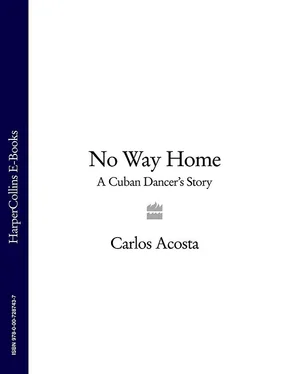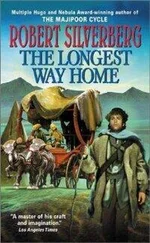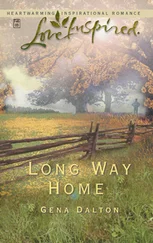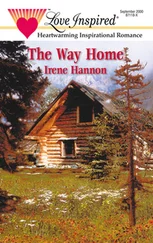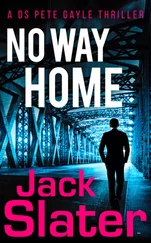Without being conscious of it, we learnt through our parents’ example that the only way to achieve something in life was through hard work. We knew that the reason we never celebrated birthday parties or other special occasions was because of the lack of money. We accepted without question the peso that each of us received as a birthday present to pay the entrance to the local cinema. We played with wooden pistols, with chivichanas (rough wooden scooters) and other contraptions that my old man used to dream up in moments of inspiration. When the clothes that we wore could not take any more repairs, we walked around with our butts hanging out.
My father was an impatient man with little time for children’s games. At home, he always had to have the last word. I remember him playing with me only once, when he taught me how to ride my sister Berta’s old bike. It was an awesome machine with huge wheels like a figure of eight and I was terrified of it, but I was even more terrified of my father, who sat me on the bike, gave me a push and then let me go. I crashed into the first lamppost I encountered and went home crying with a bump on my head. My mother screamed at my father, telling him that he was an insensitive brute and that I was never going near that damn bicycle again. He calmly retorted that it was the only way to make me lose my fear. The following morning he seated me on that heap of junk once more and I promptly smashed into the lamppost again. After numerous bumps on the head, I finally managed to do what my father wanted, though, far from losing my fear, I developed a genuine terror of the bicycle that I never overcame.
My father never spoke much about his past. I learnt only recently that my grandfather died when my father, Pedro, was six, and his mother was the daughter of slaves who had been born on the sugar mill belonging to the Acostas, a well-known Spanish landowning family from the town of San Juan y Martínez in Pinar del Río. From them came the surname that, after my grandfather died, would later be passed on to the rest of my family. When he was nine my father started to sell newspapers, hawking the latest news around the streets of Pinar del Río. After the death of his father, he had no alternative but to grow up prematurely in order to help his mother and his younger brother. As an adolescent he worked in the docks as a stevedore, loading bags of sugar. By the time his voice broke, his experience was already that of a man twice his age.
My father was born in 1918. His youth was marked by the great inequalities of race and class that existed at that time, when the poor man had to swallow his pride and collect the crumbs that the rich man swept from his table. It was during those days of his youth that my father saw ballet for the first time, in a silent film. The cinema was reserved exclusively for whites, but Pedro managed to sneak in. He did not know what the peculiar dance was, but the ballerinas immediately spoke to his senses as they spun round like Japanese parasols, elegant, delicate and light. My father lost himself in that unfamiliar world, but all too soon the usher arrived to remind him that he was poor and black, and to kick him out into the street. From that moment on, the ballet had captured him for ever.
In our house, my father slept on mats which he threw down onto the floor of the tiny living room in the space between the wicker armchairs and the ancient sideboard that groaned under the weight of the old American-made, always-broken television, and the Siboney brand Russian radio. On moonless nights his black skin was camouflaged by the darkness, and you had to follow his cigarette as it floated in the air in order to find him. My parents had already divorced and shared the house out of convenience. Neither of them had anywhere else to go. Mamá slept with me in the single bed that was jammed up against the wall that divided the bedroom from the living room, whilst my sisters slept in the double bed on the sagging mattress with sharp springs that poked through the lining. You had to memorize exactly where those springs jutted through in order to avoid getting snagged. Sometimes I had to sleep in the big bed and the springs would catch my right thigh and ankle and my back. My sisters, Marilín and Berta, knew the position of each and every spring, but I always had trouble remembering where to find them. When, years later, my father brought home a rustic pine bunk bed he had found, it became almost impossible to move in the bedroom, everything was so crammed that you could only walk through in single file. My father moved to the lower bunk bed, Berta to the top, and I moved to the double bed with my sister Marilín, though I never got used to sleeping without my mother’s blonde hair spreading over my face.
Unlike my father, when my mother started to talk about her childhood we could not stop her. We knew that her father’s family had arrived from Spain in the 1920s and had settled in Almendares, a middle-class district of Havana. My grandfather Carlos Quesada, a tall fair man with green eyes, had lent his name to my baptism. Grandfather grew up with few traces of his European roots. He soon identified himself with the cause of the Cuban poor, with those who did not have opportunities, forgetting all about his own status. Not unnaturally this was seen as a great misfortune by his parents, who were horrified that he cared nothing for his social standing. How had they failed? Why had destiny played them such a bad hand? They tried to make Carlos change his opinions, but all in vain. My great-grandparents died in the 1950s within a month of each other, both still relatively young. My mother would never agree with me, but I think they died of grief.
After a long romance, Grandfather Carlos married Grandmother Georgina, an olive-skinned lady with a strong constitution, a broad nose and legs of steel. They had three daughters to add to the daughter that my grandmother already had from a previous marriage. The oldest of their three children together they named María. This girl, who would one day become my mother, exuded vitality from every pore. She lost her virginity to a local boy at seventeen and was soon obliged to put her childhood games away, for less than nine months later, on the 25 December 1965, she gave birth to my half-sister Berta. This prompted disagreements with my mother’s half-sister, nicknamed ‘La Nin˜a’, who, being married and with three children of her own, considered herself to be head of the household. There was not room for them all in the house, she said. My mother and her sisters, Aunt Mireya and Aunt Lucia, and baby Berta had to move into the garage at the back of the house. Grandmother Georgina, who was intimidated by La Niña’s husband, did little to stop the move. Grandfather Carlos objected, but his words held little weight. He had already been diagnosed with the cancer that would make him disappear.
Berta had dark brown hair, a slim nose and green eyes like Grandfather Carlos. Her father hardly bothered with her when his relationship with my mother was over. When Berta was one and a half and already starting to show signs of a strong character, she carelessly threw a ball into the street and a black man kindly retrieved it for her. My mother thanked him and the man rewarded her with a wide, warm smile that revealed two gold crowns nestling amongst his upper teeth. It was the start of a new love affair. At first, my mother and the man who would become my father saw each other secretly – after all, he was nearly thirty years older than her, had been married several times, and had eight children already. Soon, though, the romance became public knowledge. The family, the neighbours, the whole world condemned María, railing, ‘What are you thinking of? Have you gone mad? Honestly! Setting your sights on a black man!’ In the late sixties, the man joined a government fruit and coffee planting initiative called Cordon Round Havana. After a year of work he came back looking for his love bearing the key to a house in his hand. In that house that same black man would one day give shelter to all those who had opposed the relationship: my grandmother and my aunts, the whole lot of them.
Читать дальше
